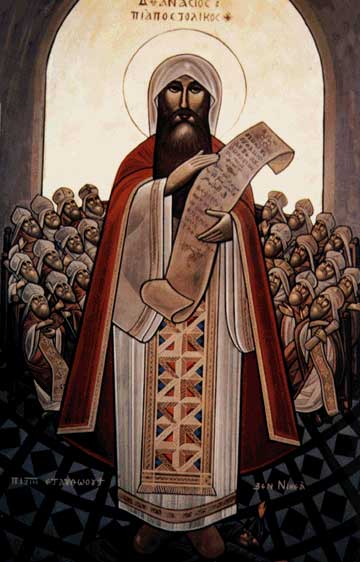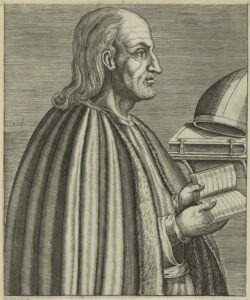Podcast: Play in new window | Download (Duration: 31:27 — 21.6MB) | Embed
Subscribe: Apple Podcasts | Spotify | Amazon Music | Android | Pandora | iHeartRadio | JioSaavn | Podchaser | Gaana | Podcast Index | Email | TuneIn | Deezer | Anghami | RSS | More

St. Bede the Venerable – The Doctors of the Church: The Charism of Wisdom with Dr. Matthew Bunson
- Born: 672 AD, Jarrow, United Kingdom
- Died: May 26, 735 AD, Jarrow, United Kingdom
- Nationality: English
- Feast: 25 May (Western Churches); 27 May (Orthodox Church and the General Roman Calendar from 1899–1969)
Dr. Matthew Bunson and Kris McGregor discuss the life and legacy of the Venerable Bede, the only Doctor of the Church from England. Dr. Bunson highlights Bede’s contributions to theology, history, and learning during a time often mischaracterized as the Dark Ages. Bede is celebrated for his “Ecclesiastical History of the English People,” his biblical commentaries, and his role in developing the AD/BC dating system.
Elevated as a Doctor of the Church by Pope Leo XIII in 1899, Bede’s work symbolized the endurance and intellectual richness of the Catholic faith in the British Isles, even during periods of suppression. His life in the monastic communities of Northumbria was marked by relentless scholarship, teaching, and prayer, embodying the quiet dedication and intellectual vibrancy of monastic life.
Discerning Hearts Reflection Questions
- The Legacy of Venerable Bede: How does Bede’s dedication to learning and teaching inspire your own approach to faith and education?
- Historical Context and Faith: What can we learn from Bede’s ability to find faith and meaning in the historical events of his time?
- Role of Monastic Life: How does Bede’s monastic lifestyle of prayer, study, and teaching reflect the values we should strive for in our own lives?
- Contribution to Theology and History: In what ways do Bede’s theological and historical works enhance our understanding of the Catholic faith?
- Endurance of Faith: How does Bede’s life demonstrate the endurance and resilience of the Catholic faith through times of adversity?
- Integration of Faith and Reason: How does Bede’s integration of faith with scientific and historical knowledge challenge the modern perception of the relationship between faith and reason?
- Significance of the Church in History: Why is it important to study the ecclesiastical history of the Church, as Bede did, to understand the development of Christian faith?
- Quiet Dedication: How can Bede’s model of quiet, tireless dedication to the Church serve as a guide for our personal spiritual practices?
 From Vatican.va, an excerpt from the teachings of Pope Benedict XVI General Audience 2009
From Vatican.va, an excerpt from the teachings of Pope Benedict XVI General Audience 2009
“By his way of creating theology, interweaving the Bible, liturgy and history, Bede has a timely message for the different “states of life”: a) for scholars (doctores ac doctrices) he recalls two essential tasks: to examine the marvels of the word of God in order to present them in an attractive form to the faithful; to explain the dogmatic truths, avoiding heretical complications and keeping to “Catholic simplicity”, with the attitude of the lowly and humble to whom God is pleased to reveal the mysteries of the Kingdom; b) pastors, for their part, must give priority to preaching, not only through verbal or hagiographic language but also by giving importance to icons, processions and pilgrimages. Bede recommends that they use the vulgate as he himself does, explaining the “Our Father” and the “Creed” in Northumbrian and continuing, until the last day of his life, his commentary on the Gospel of John in the vulgate; c) Bede recommends to consecrated people who devote themselves to the Divine Office, living in the joy of fraternal communion and progressing in the spiritual life by means of ascesis and contemplation that they attend to the apostolate no one possesses the Gospel for himself alone but must perceive it as a gift for others too both by collaborating with Bishops in pastoral activities of various kinds for the young Christian communities and by offering themselves for the evangelizing mission among the pagans, outside their own country, as “peregrini pro amore Dei”.
Making this viewpoint his own, in his commentary on the Song of Songs Bede presents the Synagogue and the Church as collaborators in the dissemination of God’s word. Christ the Bridegroom wants a hard-working Church, “weathered by the efforts of evangelization” there is a clear reference to the word in the Song of Songs (1: 5), where the bride says “Nigra sum sed formosa” (“I am very dark, but comely”) intent on tilling other fields or vineyards and in establishing among the new peoples “not a temporary hut but a permanent dwelling place”, in other words, intent on integrating the Gospel into their social fabric and cultural institutions. In this perspective the holy Doctor urges lay faithful to be diligent in religious instruction, imitating those “insatiable crowds of the Gospel who did not even allow the Apostles time to take a mouthful”. He teaches them how to pray ceaselessly, “reproducing in life what they celebrate in the liturgy”, offering all their actions as a spiritual sacrifice in union with Christ. He explains to parents that in their small domestic circle too they can exercise “the priestly office as pastors and guides”, giving their children a Christian upbringing. He also affirms that he knows many of the faithful (men and women, married and single) “capable of irreproachable conduct who, if appropriately guided, will be able every day to receive Eucharistic communion” (Epist. ad Ecgberctum, ed. Plummer, p. 419).
The fame of holiness and wisdom that Bede already enjoyed in his lifetime, earned him the title of “Venerable”. Pope Sergius I called him this when he wrote to his Abbot in 701 asking him to allow him to come to Rome temporarily to give advice on matters of universal interest. After his death, Bede’s writings were widely disseminated in his homeland and on the European continent. Bishop St Boniface, the great missionary of Germany, (d. 754), asked the Archbishop of York and the Abbot of Wearmouth several times to have some of his works transcribed and sent to him so that he and his companions might also enjoy the spiritual light that shone from them. A century later, Notker Balbulus, Abbot of Sankt Gallen (d. 912), noting the extraordinary influence of Bede, compared him to a new sun that God had caused to rise, not in the East but in the West, to illuminate the world. Apart from the rhetorical emphasis, it is a fact that with his works Bede made an effective contribution to building a Christian Europe in which the various peoples and cultures amalgamated with one another, thereby giving them a single physiognomy, inspired by the Christian faith. Let us pray that today too there may be figures of Bede’s stature, to keep the whole continent united; let us pray that we may all be willing to rediscover our common roots, in order to be builders of a profoundly human and authentically Christian Europe.”
For more visit Vatican.va
For more from Dr. Matthew Bunson, check out his Discerning Hearts page.
Dr. Matthew E. Bunson is a Register senior editor and a senior contributor to EWTN News. For the past 20 years, he has been active in the area of Catholic social communications and education, including writing, editing, and teaching on a variety of topics related to Church history, the papacy, the saints and Catholic culture. He is faculty chair at Catholic Distance University, a senior fellow of the St. Paul Center for Biblical Theology, and the author or co-author of over 50 books including The Encyclopedia of Catholic History, The Pope Encyclopedia, We Have a Pope! Benedict XVI, The Saints Encyclopedia and best-selling biographies of St. Damien of Molokai and St. Kateri Tekakwitha.


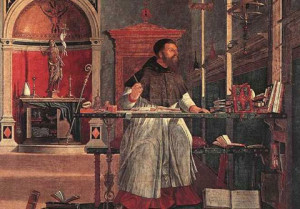
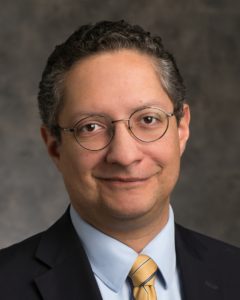
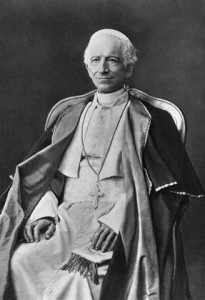 About Pope Leo XIII
About Pope Leo XIII